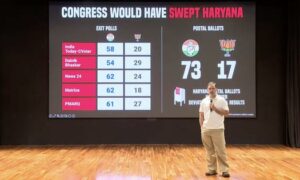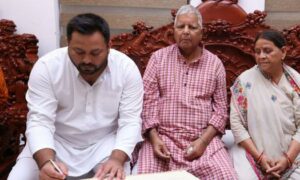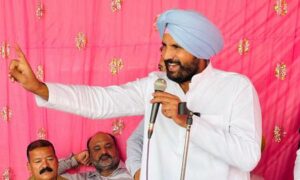
When Sridhar Vembu, the founder of Zoho, took to social media on October 28 to endorse a controversial report linking vaccines to autism, he lent his public credibility to claims that are not just blatantly unscientific, but also politically dangerous.
The McCullough Foundation Report, written in collaboration with discredited figures such as British anti-vaccine activist Andrew Wakefield, presents itself as a comprehensive scientific review of the causes of autism. It is, however, a carefully curated long-form opinion piece that blends the stylistics of evidence-based medicine with the logic of conspiratorial grievance.
Vembu’s decision to elevate a document that asserts, against overwhelming evidence, that routine childhood vaccination is the “most significant modifiable risk factor” for autism, is emblematic of a broader moment in which technocratic elites and a fragmented media ecosystem converge to recast fringe scientifically dubious assertions as “brave dissent”.
This appeal in his tweets to “parental voices”, “censored doctors” and “gut-brain connections” draws directly from a repertoire that has long cast the scientific mainstream as dogmatic and the questioning outsider as heroic. It is, then, worth examining the social and political undertones of his arguments.
Performative uncertainty
The McCullough Foundation Report claims to be a comprehensive review on the determinants of autism. It features a long reference list, domain-specific language, and an evidentiary architecture that mimics systematic medical reviews.
But it is a carefully orchestrated performance of scientificity. It wishes to convey legitimacy by selectively curating studies, omitting robust counter-evidence and discrediting neutral or negative findings on specious grounds.
The crux of the report claims that childhood vaccination is a dominant modifiable risk factor for autism. The report arrives at this conclusion by reverse-engineering correlation into causation.
It relies heavily on anecdotal parental accounts and underpowered observational studies. At the same time, it dismisses large-scale epidemiological work that shows no causal association between vaccines and autism on the grounds that such studies lack “truly unvaccinated” controls. This ensures that only confirmatory data, cloaked in the garb of comprehensiveness, survives the review.
The report reanimates Andrew Wakefield, who was removed from the British medical register because of his involvement in a fraudulent study in 1998 claiming a link between vaccines and autism. By doing so, the report casts science as a battlefield between cowards and truth-tellers, between silencing institutions and those brave enough to challenge them.
Rise of counter-expertise
Vembu’s statements come in a long line of actions that have become increasingly prominent in both global and Indian vaccine discourse. Credibility no longer seems to hinge on peer review, disciplinary expertise, or institutional vetting. Instead, it pivots to a constellation of “parental voices”, “doctors silenced by the system” and laypersons armed with anecdote and intuition.
Vaccination schedules are the outcome of historically situated negotiations between scientific evidence, institutional constraints and public risk perception. To say that we are giving “too many vaccines” is to suggest there is an ideal number somewhere.
Vembu mocks “credentialism”, claiming that one need not be a doctor to “do their own research”. He valourises those who defy professional risk to speak “the truth”. In doing so, Vembu collapses critical engagement into contrarianism, turning every challenge to institutional science into an act of liberation. His actions also conceal the asymmetry of influence. Vembu is not just a parent speaking from the margins but a powerful entrepreneur whose words carry weight in public and policy spaces.
Political work of misinformation
It is tempting to treat Vembu’s statements as unfortunate lapses in judgement. But his claims are an emergent form of scientific counter-politics in which disinformation is strategically deployed in the fight over who gets to define the truth.
India is home to a plethora of communities with their own belief systems, experiences, struggles and ways of engaging with their social and political worlds. Their unique positions sometimes put them at odds with public health endeavours.
For instance, some communities have chequered histories of engagement with vaccination drives that result in them viewing the political and scientific system with a degree of mistrust. The anti-vaccine ecosystem exploits this fragmentation. It cultivates suspicion by amplifying the ambiguities, selectively citing outliers and weaponising the language of caution and inquiry.
This is part of a broader ideological project that aligns itself with growing suspicion toward institutions perceived as captured and complicit in globalist agendas. In this light, vaccines become proxies in a battle over autonomy, technocracy and sovereignty.
When Vembu echoes rhetoric that attacks the US Center for Disease Control, he does not simply challenge US or western institutions – he implicitly undermines the entire transnational architecture of health regulation, much of which is embedded in India through World Health Organization guidance, global partnerships that spring from the Gavi vaccine alliance, and national immunisation programmes.
This rhetoric has material consequences. Misinformation exacerbates the very inequalities it claims to expose. Vembu is unlikely to bear the brunt of an erosion of trust in vaccines. It is marginalised children whose communities lack access to paediatric care and pregnant women who now hesitate to receive a tetanus booster.
Reclaiming public reason
Vembu’s amplification of the McCullough Report and his framing of scientific consensus as “dogma” are part of the shift from science as a public good to science as a battleground of competing claims, where it is freed from the obligation of mutual accountability.
The way forward is not to double down on technocratic defensiveness, or dismiss sceptics as anti-science simpletons. Instead, there is a need to reimagine public reason as a shared terrain where uncertainty, disagreement and evidence can coexist as co-constructors of democratic science.
Vembu may believe that he is asking the right questions. But science progresses by questioning the world through shared methods, evidence and accountability. What counts as “truth” is built through collective scrutiny, not individual conviction.
Science’s openness to revision and its insistence on rigour makes it resilient. When people like Vembu mistake contrarianism for inquiry, they ignore that science advances through disciplined collaboration and the hard work of proof.
Vaccine confidence, like any social contract, is built slowly and undone swiftly. When elite voices lend weight to fringe ideas, the consequences get measured in lives, trust and the future coherence of science as a shared civic resource.
Rishabh Kachroo is an independent researcher working on the public understanding of science and the larger knowledge politics questions that surround it.
📰 Crime Today News is proudly sponsored by DRYFRUIT & CO – A Brand by eFabby Global LLC
Design & Developed by Yes Mom Hosting






